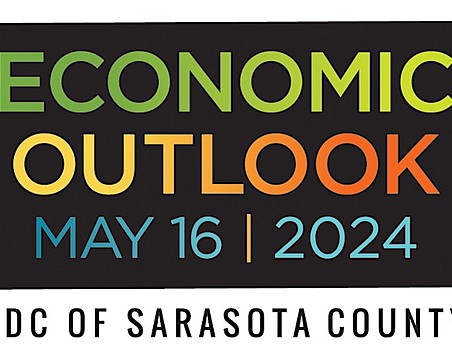Winners change to remain winners
Matt Walsh
Editor/Publisher
Are you playing to win?
Or are you playing not to lose?
Those two questions should spark a lot of thinking about your approach to your business. They certainly tweaked the minds of about 50 Tampa Bay chief executives recently at a session of the CEO Council of Tampa Bay, a group that meets about twice a month to help CEOs of growing companies ... "play to win."
The bearer of those questions was Robert Kriegel, a best-selling author, popular motivational speaker and commentator on National Public Radio's Marketplace program. Kriegel spent two hours coaxing his listeners to challenge everything they're doing in their businesses and personal lives and to make concerted efforts to break old habits. Staying stuck in motion is a ticket to certain business death. "Why do the (business) giants turn to dinosaurs?" Kriegel asked. "Because they kept playing by the old rules."
You could say Kreigel, a Ph.D. in psychology and a frequently consulted sports psychologist, is one of the pop-business' leading "change agents." Consider his book titles: "If it ain't broke, BREAK IT!" "Sacred Cows Make the Best Burgers," and "How to Succeed in Business Without Working So Damn Hard." His whole message is all about change.
And he presents it entertainingly, thanks to his street-smart Brooklyn background and on-and-off New York accent. And, as you would expect, like most motivational gurus, he has a briefcase full of catchy, albeit hackneyed sayings.
But that's OK. He makes you think about how you need to change. "People who keep winning are constantly changing," Kriegel says. "They're always challenging the status quo. They're always looking to re-invent. Winners think: Stay ahead.
"What do you have going for you when you're successful?" Kriegel asks. "You have high morale, money, momentum ... That's the time to change."
He cites the example - one of many in Kriegel's arsenal - of Magic Johnson, former NBA basketball great. After Johnson's first year with the Los Angeles Lakers, Johnson invented the "Baby Sky Hook" shot. Says Kriegel: "Everybody said, 'Magic what are you doing? That's not what a point guard does.' But Magic's response was: 'If I don't keep adding new stuff to my game, I'm going to fall back.' "
Kriegel says that next year, with 10 seconds left in the championship game, Johnson tossed one of his Baby Sky Hooks to beat the Boston Celtics.
Winners need to keep changing, Kriegel urges, because now, more than ever, the business landscape is changing faster than ever. "Think about the changes you've seen in your business in the past five years," he says. "If you've seen 'X,' I guarantee it's going to be about 10 times X the next five years."
In two hours, Kriegel covered a lot of pieces that make up the engines of change. Here are excerpts:
• Playing to win vs. playing not to lose
"If you play to win, you win more often." But Kriegel also acknowledges, "If you play to win, you make more mistakes."
By the same token, he says, "Playing it safe is dangerous. When you're playing not to lose, you lose the juice, you lose the fire, you lose the passion.
"The reason people play not to lose is fear," he says. "People are afraid of making mistakes. It's a mind killer. It blows everything out of proportion."
If you're the leader of your company, Kriegel says, ask yourself: Where could you be playing more to win? Where are you playing not to lose?
• 'Change-ready organizations'
"You must be willing to challenge everything," Kriegel says. "We're all creatures of comfort. If something works, you keep doing it. But you'll be history."
Kriegel recommends that you do one thing differently every week. "Get in the habit of breaking habits," he says. "One of the rules for change is you should always feel a little uncomfortable."
Kriegel equates the "change-ready" organization to a surfer who is looking to ride the next wave. "You start before the wave gets to you. You can't wait for it," he says.
• Working hard(er)
At one point in his presentation, Kriegel takes on the persona of a frantic, stressed-out worker bee. He starts out speaking slowly and then speeds up his cadence, the pitch and loudness of his voice and hand motions - faster, faster, faster.
"Here's what I hear all of the time," he says. "It's pedal to the metal. It's run, run, run! Speed! Make more cars! Work harder! Work longer!
"But that response is a trap. You fall into the 'gottas.' Gotta do this. Gotta do that. There's enormous stress. Rushing. Racing. Roaring. That stress will ruin your relationships and your quality of life. And it will keep you from getting ahead."
Kriegel says most people work four to five hours a day at peak level, so you have to know when that is. "In peak times," Kriegel says, "do things that are going to bring about big results."
To think that you're going to win by working harder or out-working your competitors doesn't work, says Kriegel. "If you have a lot of balls in the air, you make mistakes and trust goes down.
"You're going to win," he says, "by out-thinking the other guy. Being more innovative."
To be innovative, Kriegel says, leaders must step back from the action. Take time to think. He says the CEO of Federated Stores turns off his cell phone and the car radio on his 35-minute morning drive to work just to think.
• The E-mail Epidemic
Kriegel chafes at how much time people are wasting reading and answering e-mails, noting that more and more companies are imposing e-mail rules. He says studies have shown that only 12% of a person's e-mails are important. So companies are responding.
Microsoft has instituted an urgency coding system for its employees. Deloitte Consulting has eliminated the "Reply All" option on its associates' e-mails. Another company, he says, has told its employees if they are copied on an e-mail, don't read it.
Here's another remedy, Kriegel says: "How about talking?"
• How you treat your associates
"The way you treat your staff will determine the way they work and the ideas they come up with," he says.
Kriegel spotlighted St. Louis Cardinals manager Tony LaRussa. Every three days he would walk around the field at practice or the locker room and talk to each player about something personal. "He showed that he cared. When he cared about them, they cared about him," Kriegel said. They played better. Mark McGwire left the Oakland Athletics for the St. Louis Cardinals just to play for LaRussa.
A manager needs to know and understand that everyone is motivated by different things. He cited an oft-quoted comment of Mike Ditka, former coach of the Chicago Bears on how he motivated his players. Quoting Ditka, Kriegel said: "You have to realize everybody's different. Some guys you have to kick their butt. Some guys you have to kiss their butt. But you have to know the difference."
"You have to connect with your people," Kriegel says. "If you don't take the time, everything will go down."
• Killing others' ideas
"The most common response to new ideas is the fire hose, the why not," he says. "You can't talk about innovation when you chop them down, when they make a mistake," he says. "Stoke people's fires, don't smoke 'em. You've got to make it fun for people."
• Kriegel's guarantee
"Everything I talk about is the same your life as it is for your business," he says. "You will end up doing more and being more than you ever thought you could be."





